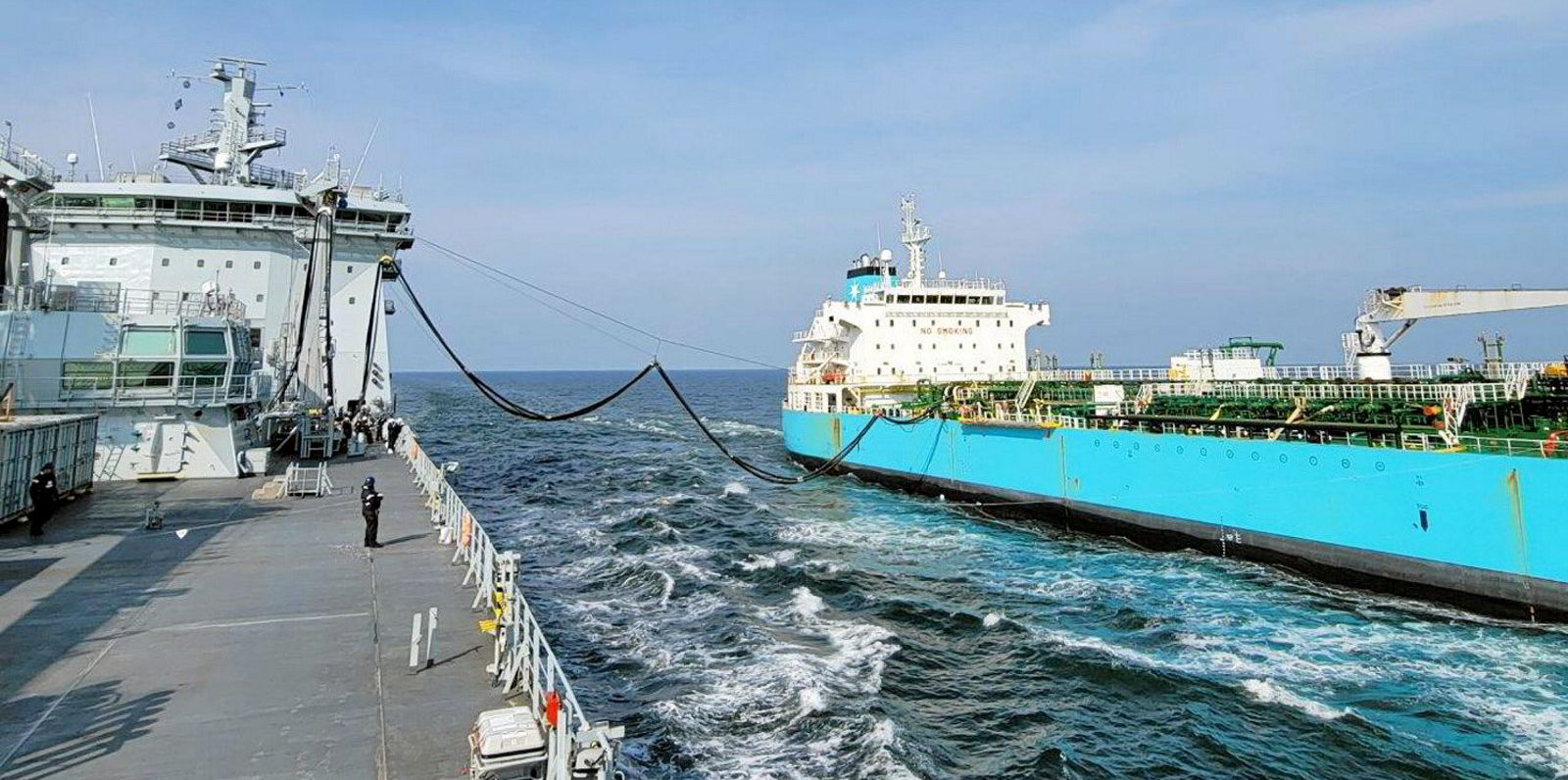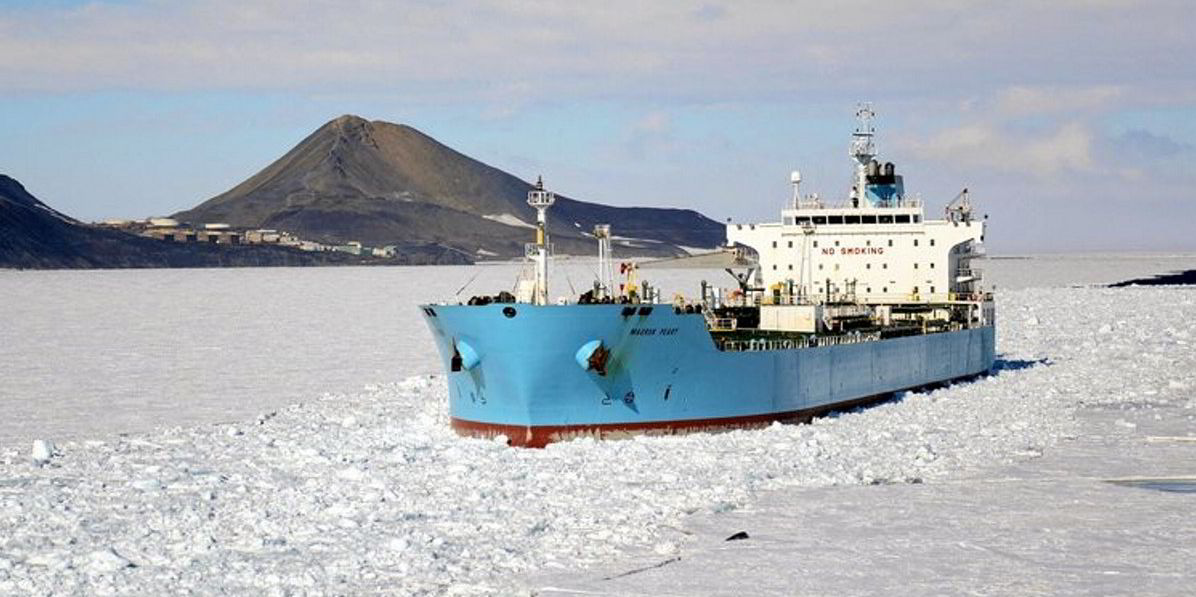NATO has moved a step closer to using commercial tonnage to refuel ships in a time of crisis following trials using a Maersk tanker.
The UK’s Royal Navy recently linked up with the 38,174-dwt tanker Maersk Peary (built 2004) off the UK coast to see whether oil could be transferred between the two vessels.
In the Royal Navy, such a task is typically carried out by the Royal Fleet Auxiliary a uniformed civilian branch of the naval service, staffed by UK merchant sailors.
The resulting link-up in the Channel — known as a replenishment at sea or RAS in naval parlance – saw the refuelling rig from the RFA Tidesurge successfully sent across to the Peary where it hooked-up with its replenishment station.
Although no fuel passed between the two ships, the Royal Navy said the successful connection proved the ability of the civilian tanker to connect with a military vessel.
The trial’s success extends between the two support forces to the rest of NATO as equipment is largely standard across the alliance.
“Calling upon civilian oilers to sustain the fleet could prove crucial if the military tankers are unable to stock up on supplies by putting into port,” a Royal Navy spokesperson said.
The Royal Navy relied on extensive support from civilian tankers during the Falklands conflict 40 years ago – sustaining a large task group 9,000 miles from the UK.
But in more recent years, that support has not been needed, nor training practised.
“Replenishment at sea from a commercial tanker to a fleet replenishment oiler can ensure our navies remain supplied and supported in a contested environment when port visits for resupply cannot be accomplished,” said Captain Douglas Jaarsma, the US Military Sealift Command exchange officer with the RFA.
Captain Sam Shattock, the RFA chief operator involved with the trials, added: “This exciting trial is the first step for the Royal Navy in developing an organic national capability to consolidate fleet replenishment oilers from commercial vessels.
“It has delivered assurance to both nations that the ability to work together remains a key tenet of our operational outputs.”
The Maersk Peary is owned by AP Moller Maersk’s US Marine Management subsidiary and is on charter to the US military for the trials.





